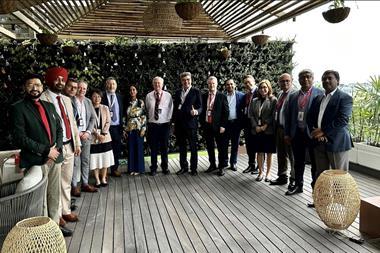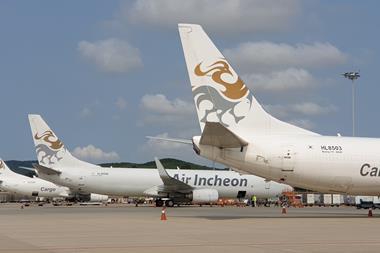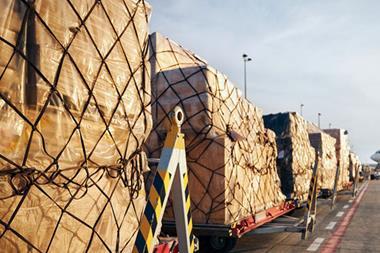IATA director general and chief executive Alexandre de Juniac has highlighted several areas that could maximise the potential contribution of India’s aviation industry to the country’s development.
Speaking at the International Aviation Summit in Delhi, co-hosted by the Indian Ministry of Civil Aviation (MoCA), Airports Authority India (AAI) and IATA, de Juniac said: “We must address infrastructure constraints that limit growth and government policies that deviate from global standards and drive up the cost of connectivity.”
On top of that, the cost of fuel is a huge burden for Indian carriers, accounting for 34% of their operating costs; the global average is 24%.
While the focus of the summit was mainly on the passenger segment, airfreight was not overlooked. IATA said total cargo tonnage flown out of India surpassed 1m tonnes last year, having grown by 16.9%. The pharmaceuticals market, in particular, plays an increasingly important role in India’s economy.
India’s main trading partners are the UAE (30% market share) and Qatar (11%), followed by Ethiopia (7%), the UK and Hong Kong (6% each).
Speaking in a panel discussion at the summit entitled, ‘Can India be a global aviation leader?’, Qatar Airways Group chief executive, His Excellency Akbar Al Baker, said: “The State of Qatar and India share a substantive and strong relationship that has evolved over the years, making India an important market for Qatar Airways. This is reflected by the 102 weekly flights we provide to 13 destinations across India.”
As well as the carrier’s passenger flights, Qatar Airways Cargo currently operates a total of 27 weekly freighter services to India, including five-times-week flights to Delhi, Mumbai and Chennai.
Mumbai and Chennai airports both rank among the global top 10 fastest-growing gateways in terms of cargo throughput according to IATA, achieving year-on-year growth of 18.1% and 17.2% respectively in 2017.
In order to capitalise on this momentum, de Juniac said India’s aviation industry must modernise its processes and develop a strategic masterplan for its airports. The government, meanwhile, should align with global standards and reduce excessive state-imposed costs, including fuel duty.
“Creating a better environment for aviation to do business can and will progress the nuts and bolts of India’s development day to day,” de Juniac said, pointing out that the government and industry “share a privileged responsibility to work together” towards that goal.









